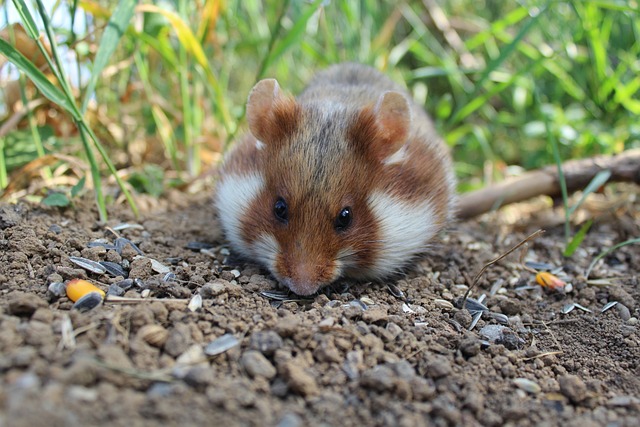Safe and Healthy Foods for Hamsters
Hamsters are popular pets due to their small size, cute appearance, and friendly nature. However, providing the right food is crucial to ensure their health and well-being. A balanced diet that includes a variety of nutrient-rich foods can help prevent health problems and promote overall fitness.
Choosing the right food for your hamster is not as easy as it seems. Many pet owners rely on commercial hamster food, but there are also many fresh fruits and vegetables that can be fed to them in moderation. This article will provide you with a comprehensive guide on safe and healthy foods for hamsters, including what to avoid and how to introduce new foods into your hamster’s diet.
Key Foods for Hamsters
Fresh Fruits:
* Apples: Remove seeds and cores, chop into small pieces
* Bananas: Slice into thin rounds
* Berries (strawberries, blueberries, raspberries): Rinse and pat dry with paper towels before offering
* Melons (cantaloupe, honeydew): Chop into small cubes
* Pineapple: Remove tough skin and chop into small pieces
Fresh Vegetables:
* Carrots: Chop into small sticks
* Cucumber: Slice into thin rounds
* Green beans: Trim ends, cut into 1-inch pieces
* Peas: Fresh or frozen, remove shells if necessary
* Sweet potatoes: Bake or boil until tender, then chop into small cubes
Protein Sources:
* Hard-boiled egg whites: Chop into small pieces
* Cooked chicken breast: Chop into small pieces
* Plain yogurt: Offer in small amounts (about 1 teaspoon per pound of body weight)
Key Foods to Avoid
High-sugar foods like sweets, cakes, and cookies should be avoided altogether.
Foods high in fat like nuts, seeds, and avocados can cause health problems if fed excessively.
Raw or undercooked meat, eggs, and fish pose a risk of salmonella and other bacterial infections.
Onions, garlic, chives, and leeks belong to the Allium family and can cause anemia in hamsters.
Tips for Introducing New Foods
Always introduce new foods gradually, starting with small amounts (about 1/4 teaspoon per pound of body weight) and increasing gradually over time.
Offer a variety of foods to ensure your hamster is getting all the necessary nutrients.
Fresh fruits and vegetables should be fed daily, while protein sources can be offered 2-3 times a week.
Benefits of a Balanced Diet
A well-balanced diet that includes a mix of fresh fruits and vegetables, along with protein sources like hard-boiled egg whites or cooked chicken breast, can help promote overall health and fitness in hamsters.
This is especially important for hamsters that are prone to obesity, as it can help prevent weight-related health problems.
Common Health Problems Caused by Poor Diet
* Obesity: Hamsters fed a diet high in fat and sugar may become overweight or obese, leading to health problems like diabetes and heart disease.
* Malnutrition: A diet lacking essential nutrients can lead to malnutrition, which can cause a range of health problems including weakness, lethargy, and poor coat condition.
* Food allergies: Some hamsters may develop food allergies or intolerances, especially if they are fed the same foods repeatedly without variation.
Conclusion:
Providing your hamster with a balanced diet that includes a variety of nutrient-rich foods is essential for their health and well-being. By introducing new foods gradually, offering a mix of fresh fruits and vegetables, and limiting high-sugar and high-fat foods, you can help ensure your hamster stays healthy and happy.
Recommended Foods
* Apples
* Bananas
* Berries (strawberries, blueberries, raspberries)
* Melons (cantaloupe, honeydew)
* Pineapple
Other Food Sources to Consider
* Cooked oatmeal with water or milk
* Plain whole wheat bread or crackers
* Limited amounts of leafy greens like spinach and kale
By incorporating these foods into your hamster’s diet, you can help provide them with the nutrients they need to thrive.

